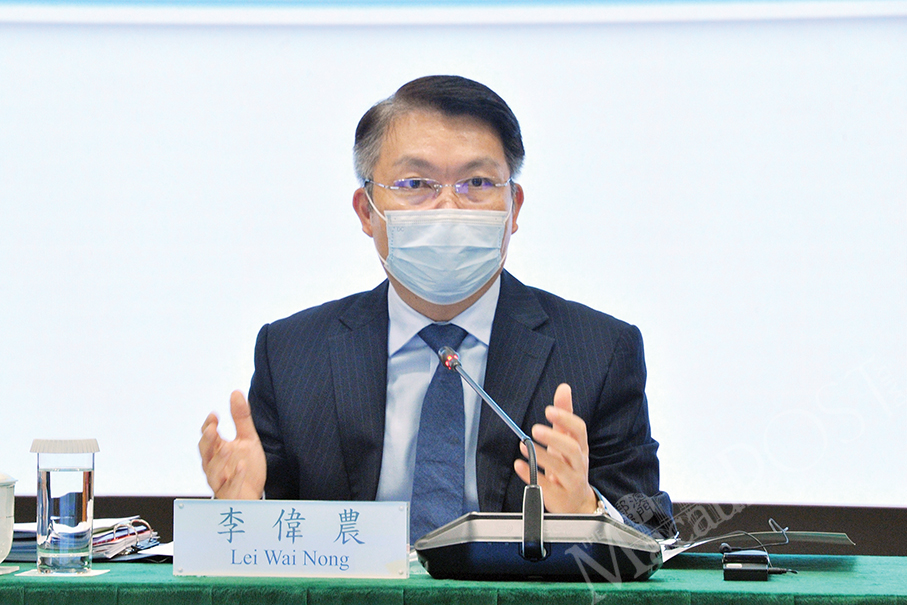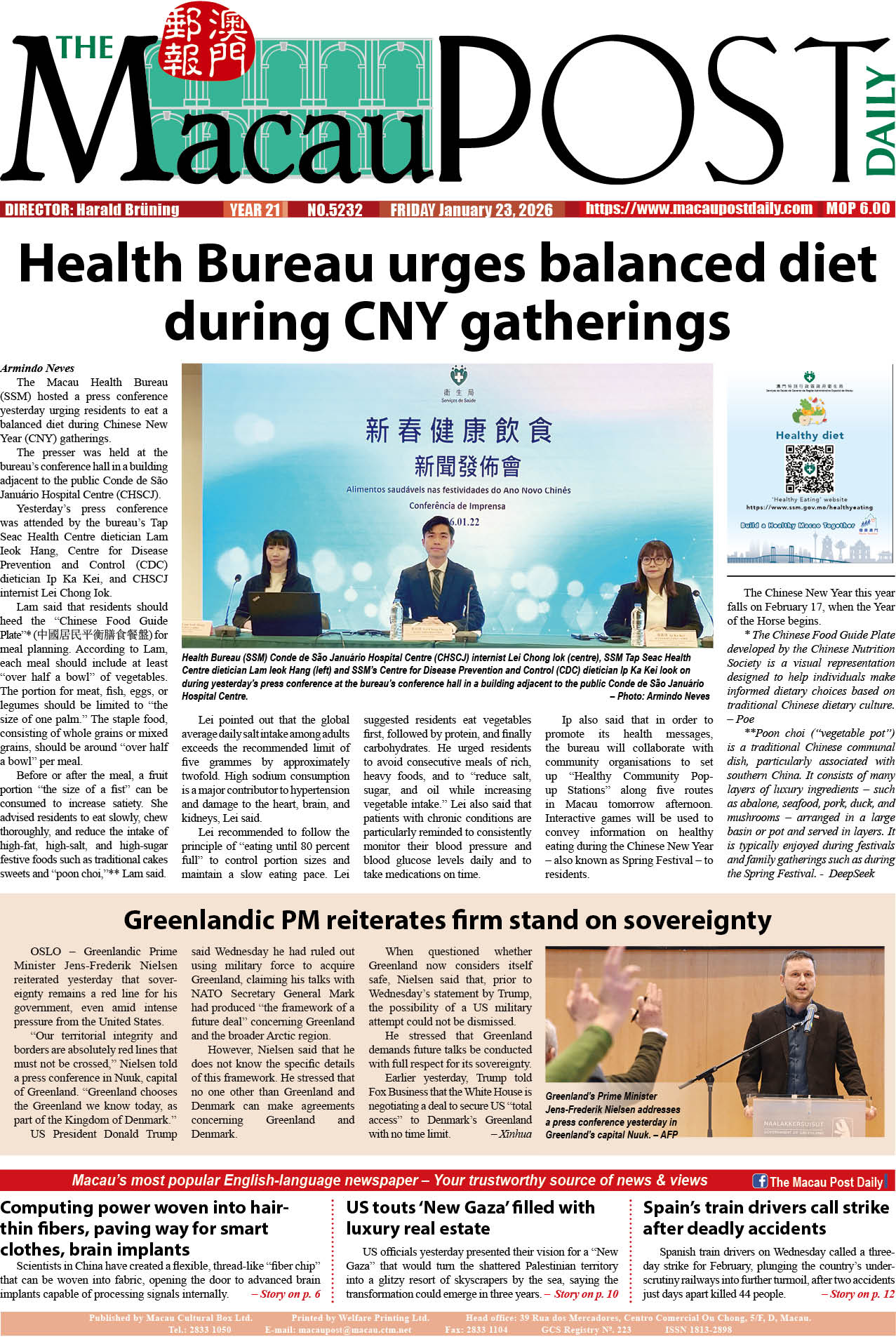A local alternative theatre group that combines performance with puppetry is presenting a stage adaption of Lu Xun’s classic work ‘Medicine’ written a century ago that is intertwined with a new story in a modern-day context to create a dialogue between then and now.
“Medicine” is generally used for the English translation of Lu Xun’s piece but the re-imagined version by Rolling Puppet Alternative Theatre Group is titled “Drug”, which will have performances for three days from Friday next week at the Navy Yard No. 2 Contemporary Art Centre in Barra, as part of “The Script Road – Macau Literary Festival” programme.
The festival this year is marking the 100th anniversary of the 1919 May 4 New Literature Movement in China, among other tributes set for the programme.
Lu Xun (1881 – 1936), the pen name of Zhou Shuren, was from Shaoxing county in eastern Zhejiang province. He is considered the leading figure of modern Chinese literature and one of the major Chinese writers of the 20th century.
This is not the first time “Drug” has been presented, as it had its local premiere in 2014 and had a showing in Hong Kong last year, but since the original story “Medicine” was published in 1919, it coincides with the festival’s theme.
Version 3.0
Rolling Puppet Alternative Theatre Artistic Director Teresa Lam Teng Teng and Executive Director Kevin Chio U Ieong told MPD Weekender earlier this week that the upcoming presentation of “Drug” would not just be the third time it has been shown it is also its third version.
“This will be ‘Drug 3.0’,” Lam said, explaining that, while the script they wrote in 2013 remains the core of the performance, improvisations and new ideas inspired by current affairs are drawn each time they prepare for the presentation as they work with different performers each time.
One of the great works from Lu Xun’s short story collection “Call to Arms (“Nahan”), “Medicine” is about a couple using their savings to buy a piece of bread covered in an executed revolutionary’s blood for their son suffering from tuberculosis to eat because
people at that time believed that fresh human blood could cure the disease.
According to the China Daily, Lu Xun’s classic works such as “Medicine”, by analysing the use of metaphors in his writings, expose the ugly side of feudal society, human nature and emancipated people’s minds.
In “Drug”, intertwined with Lu Xun’s original story, is a modern-day story about the fate of old shops at the turn of the century. According to its promotional materials, “Drug” leads the audience through ancient and modern space-time to taste the bitterness and absurdity of the two old and new “prescriptions”.
“Presenting the two stories back-to-back can show whether what Lu Xun wrote then is still relevant today – have we learnt from the past or have we stayed the same,” Lam explained, and going further with Lu Xun’s use of metaphor, using the word “Drug” instead of “Medicine”, the adapted version explores whether “drug” is a poison or a cure for people.
Why puppets?
The presentation will see performers acting with puppets, unlike the usual puppet theatre where people control the marionettes’ action from behind the scene.
“This is not about how we use the puppets but why we use puppets,” Lam said, explaining that it was particularly fitting to use puppets in this theatre presentation because of the metaphors and imageries used in the story.
Three characters – the sick son, the revolutionary, and the mother of the revolutionary – are presented by puppets.
“The sick son and the revolutionary almost have no voice in Lu Xun’s ‘Medicine’, and both of them die in the end,” Lam said, pointing out that the puppet of the sick son is made – of pieces of cloth from other characters’ clothes – and dismantled in the end live on stage as part of the performance.
“This is a very metaphorical way of using puppets,” Lam said, without giving away too much as she wants to leave it to the audience to see what it symbolises.
The head of the revolutionary is made of wax.
“Because he is to be executed, his head has to come off. The wax head is red and there’s a wick on the top so it can be lit, and the fire is like a tribute to the revolutionary,” Lam explained, and the head of the revolutionary’s mother is also made of wax, but white with a sad facial expression, as opposed to his son’s red wax head which has an angry face.
“The materials used for the puppets of the revolutionary and his mother are the same, but the white wax burns with the fire of sorrow and the red wax [results in] the fire of a revolutionary’s fervent spirit,” Lam added.
The performance will be accompanied with live original music score by Bruce Pun Chi Man playing the drums, guitar, keyboard, guzheng and Chinese temple block in a “one-man band”.
“We want to give the audience a total theatre experience,” Lam said, “We’re talking about something serious, but when it becomes a theatre adaptation, it needs to be entertaining. You need to let your audience enter your world so that they can be entertained.”
For schedule details please check http://thescriptroad.org/schedule/
Rolling Puppet Alternative Theatre Artistic Director Teresa Lam Teng Teng (right) and Executive Director Kevin Chio U pose after speaking to MPD Weekender in the Nam Van earlier this week. Photo: Monica Leong







